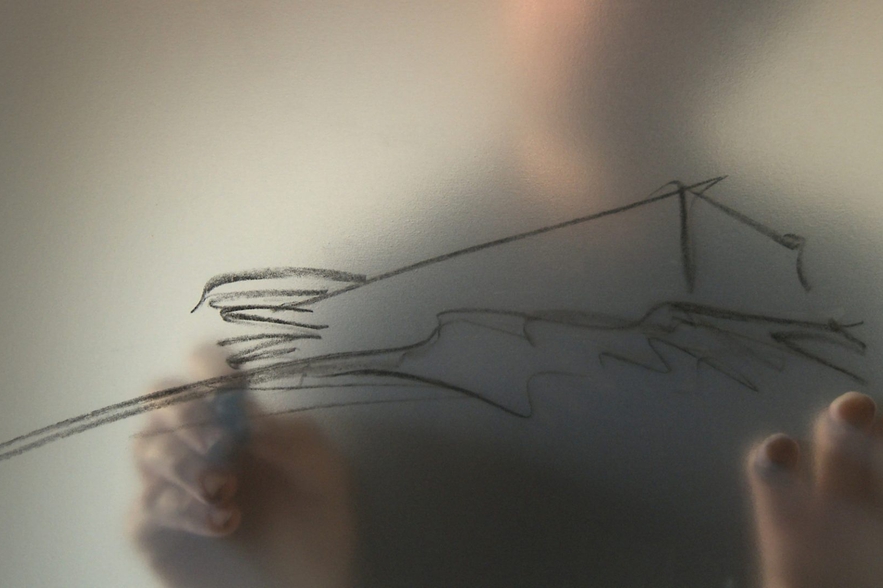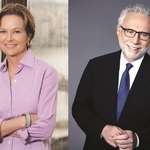Berlin Films: Mendelsohn’s Incessant Visions

- Date/Time
- –
- Venue
- Center for Jewish History (map)
15 W. 16th St.
New York, NY 10011 - Format
- In person
- Cosponsors
He drew sketches on tiny pieces of paper and sent them from the trenches to a young cellist who was waiting for him in Berlin. She thought he was a genius, and after WWI she helped him become the busiest architect in Germany. When she planned to leave him, for a communist poet, he built her dream house, every detail tailored to her tastes, from the lake-view living room to the silver-wear and her evening-gowns. When the Nazis came to power, they escaped Germany and left the house forever. Erich and Louise Mendelsohn wandered between continents, between wars, between success and failure, leaving Erich’s magnificent buildings scattered in their path.
Erich Mendelsohn, a contemporary of Walter Gropius and Miess van der Rohe, influenced generations of architects. In this creative homage, his story unfolds through correspondence with Louise, a beautiful young cellist who became his wife. The director, Duki Dror, gently breathes life into the correspondence of two passionate artists who helped each other weather a turbulent time in history. Mendelsohn’s career followed the jagged trajectory of many German-Jewish émigrés fleeing Nazism; he worked in England, Israel and finally, in the USA. Mendelsohn’s drawings pulsate with energy, and his buildings are stunning. His earlier work, the Einstein Tower, is one of the most important exemplars of modern architecture. Dror deftly juxtaposes the architect’s original designs with contemporary images, weaving in reflections from architects and locals who use these unique buildings today—a testament to the integrity and timelessness of his visionary design.
With remarks by Gavriel D. Rosenfeld
Gavriel D. Rosenfeld is Professor of History and Director of the Undergraduate Program in Judaic Studies at Fairfield University. He received his B.A. in History and Judaic Studies from Brown University in 1989 and his Ph.D. in History from UCLA in 1996. His area of specialization is the history and memory of Nazi Germany and the Holocaust. He has written a wide range of books, including the newly released monograph, Hi Hitler! How the Nazi Past is Being Normalized in Contemporary Culture (Cambridge, UK: Cambridge University Press, 2015) and the forthcoming edited collection, What Ifs of Jewish History: From Abraham to Zionism (Cambridge, UK: Cambridge University Press, 2016). He is also the author of Building after Auschwitz: Jewish Architecture and the Memory of the Holocaust (New Haven: Yale University Press, 2011), The World Hitler Never Made: Alternate History and the Memory of Nazism (Cambridge, UK: Cambridge University Press, 2005), Munich and Memory: Architecture, Monuments and the Legacy of the Third Reich (Berkeley: University of California Press, 2000), and the co-edited work, Beyond Berlin: Twelve German Cities Confront the Nazi Past (Ann Arbor: University of Michigan Press, 2008).

